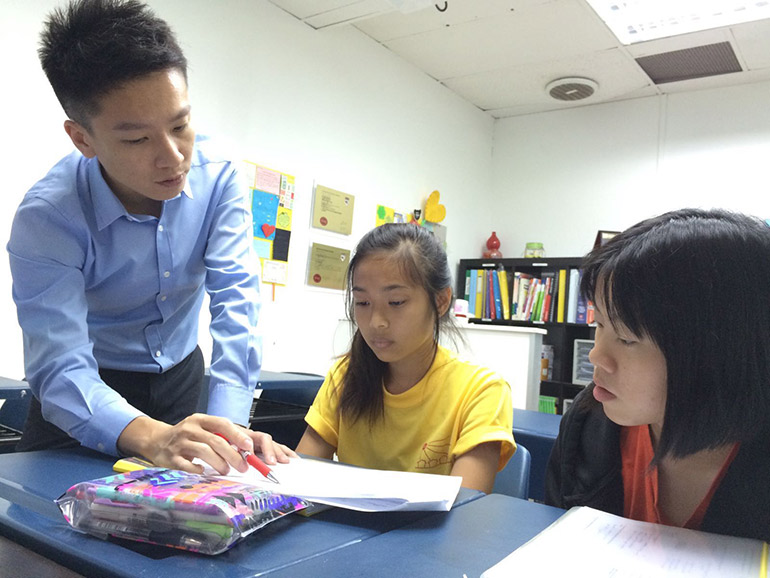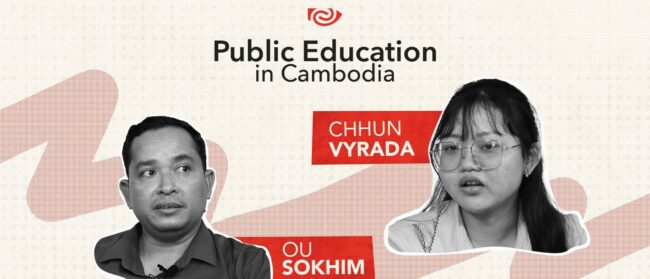In 2014, it emerged that a three-year-old in Singapore was enduring three hour-long tuition lessons each week after nursery school. Toddler Gabriel Tan was learning Chinese with the help of flashcards, as well as basic abacus skills – on top of regular piano and tap-dancing classes. His mother hoped the rigorous regimen would allow her son to “keep up” once enrolled in primary school.
The case shone a light on Singapore’s ‘educational arms race’, a term coined by Christopher Gee, a senior research fellow at the Institute of Policy Studies. Yet it is far from unique: an increasing number of Singaporean families are spending ever-larger amounts on private tutoring for their progenies.
Last year, the Organisation for Economic Cooperation and Development declared the Singaporean schooling system to be the best in the world. Despite such high praise, the country’s tutoring industry is booming. In 2004, the sector, which provides supplementary instruction to Singapore’s students, was already worth SGD650m ($476.8m). Today, it is valued at more than SGD1 billion ($733.5m) annually.
And a survey conducted in 2015 by Nexus Link showed that 80% of Singapore households with primary school children paid for private tuition, while corresponding figures were 60% for secondary education and 40% for pre-primary education. According to educators, there are now thousands of tutors scrambling to carve a niche in this swelling pedagogical bubble. Rising to the top of the class however, is a new breed of after-school educators: the ‘super tutors’.
This small, but growing, group of private tutors is earning big bucks from the increased demand for private tuition. At least ten members of this educational elite rake in annual incomes exceeding SGD1m ($721,000), according to Singapore’s Straits Times newspaper.
Among them is Anthony Fok, a confident, accomplished 30-something who is studying for a PhD. He was a well-paid accountant at one of Singapore’s ‘big four’ audit firms, before quitting the “mundane” job in 2007 to tutor teenagers in economics. “I preferred interacting with students and sharing my knowledge with others,” he said.
Fok’s services do not come cheap – $308 will cover the cost of a four-lesson package. Despite this, students from across Singapore attend his weekly classes, with some even venturing over the border from Malaysia. Each session typically lasts 1.5 hours and contains between 30 and 50 students, with a waiting list of about 20 would-be pupils.
He has been offered grand sums by wealthy parents to ensure top results.
I remember one parent offered me SGD20,000 [$14,600] to guarantee her child an ‘A’ grade, just one month before the A-levels
He turned down the offer.
Gary Ang, 37, is another tutor operating in the city-state, bringing in five figures monthly. He conducts 24 hours of maths tuition weekly, between studying for his Master’s degree in mathematics. His two-hour classes cost up to $62 per session and generally seat about 15 students, catering for those aged between 15 and 18.
Ang puts his success down to his ability to inspire students’ interest and communicate ideas clearly. He recalled a student who approached him demoralised by his mathematical inability, but who went on to score highly in his exams. “I don’t think I taught him anything different. But it was how I coached him and made him realise his potential that made the difference,” he said.

Although Fok stressed that “no tutor can guarantee success”, more than 60% of his 200 to 300 students earn distinctions in their A-level and O-level examinations each year. He acknowledges this is not entirely down to his efforts. “I believe the school teachers played an important role, together with the supportive parents,” he said.
When it comes to the ingredients necessary to succeed in the industry, the tutors espoused varying recipes. Millionaire tutor Fok believes that offering services that go beyond the standard gives him a competitive edge. “All students have my personal number and they can SMS me, even after tuition hours. Many students message me in the middle of the night, and I still reply to their messages,” he said.
Of course, these tutors’ feats cannot be solely attributed to their individual talents as educators and businessmen – they have been abetted by a rapid growth in demand for private tuition in Singapore.
One might assume that the high demand for private tuition indicates shortcomings in Singapore’s public education system, but the evidence is stacked to the contrary. However, the country has a highly stratified education system. The high-stakes Primary School Leaving Examination tests children in English, an Asian language (often Chinese, Malay or Tamil), science and mathematics. Children who perform well are more likely to be accepted into the secondary school of their choice, thus improving their life chances.
The colloquial Singaporean-English term kiasu can be translated as ‘afraid to lose out’, and is often applied to the competitive attitude of parents. Mark Bray, UNESCO’s chair professor in comparative education, believes this mentality lies behind the growth of Singapore’s private tuition industry.
In addition, the country has few natural resources and has always relied on its human capital to compete on the world stage.
Singapore has always been conscious of its small size in a challenging environment, requiring diligence and innovation to survive and prosper.
Mark Bray
And Asian countries such as Hong Kong, Korea, Japan and Singapore have traditionally been hubs of scholarly competition. Bray attributed this to a Confucian culture of diligence and respect for authority.
“In Europe and elsewhere, students who are not good at mathematics may simply say that they are not good at mathematics. Confucian cultures are more likely to say that they don’t try hard enough. Tuition is a way to show diligence,” he said.
Meanwhile, globalisation has become a modern driving factor in the growth of tutoring. “The forces of globalisation, with awareness that factories can move and that services can be outsourced at the click of a computer mouse, make families in all countries mindful of competition,” Bray said.
He argued that the rising numbers of private tutors also reflects the spread of neoliberalism – a form of capitalism that holds state intervention in disdain, even in the sphere of traditionally public services such as education. “Parents can purchase education. It is an increasingly marketable service.”
But paying large sums for after-school tuition is not an option for all. The Straits Times found in 2015 that households earning more than $4,400 a month spent more than double the amount invested in private tutors by those earning below $2,200.
Ang said he occasionally provides discounted or free lessons to underprivileged children, and admitted that the prevalence of private tuition concerns him. “With so much after-school tuition, it seems like students from more privileged families have an edge since they can afford more tuition classes and more coaching. This, in my opinion, has an adverse effect on social mobility,” he said.
Bray suggested that tutors offering discounted services to poor students were the exception rather than the norm.
Some tutoring companies, for social reasons, want to be seen being nice people, but I wouldn’t believe there is too much of it because, otherwise, they’d go out of business.
Mark Bray
Several parliamentarians, including then-education minister Heng Swee Keat, last year spoke out against the private tutoring industry during a debate on education, arguing it was unnecessary and undermined students’ ability to think independently.
Among them was Yee Jenn Jong, a non-constituency MP who told a parliamentary committee that “we need not have this competition”, arguing that schools ought to move away from a strong fixation on academic results.
But despite this, there are a number of government-subsidised welfare groups in Singapore, including the Council for Development of Singapore and the Singapore Indian Association, that provide tuition, often for a small fee.
Writing in the Journal of Youth Studies in 2009, the Institute of Education’s Jason Tan observed that “the Singapore government, by providing financial assistance to these organisations, is directly sanctioning the practice of private tutoring”, and at least partly contributing to increased demand.
The ministry of education declined to comment while minister for schools Ng Chee Meng did not respond to questions from Southeast Asia Globe.
Although private tuition can be seen as damaging to social mobility in Singapore, experts also argue it should not be viewed in an entirely negative light. “Private tuition may contribute not only to personal advancement but also to disciplined behaviour and human capital for national development,” Bray said.
“It can be argued, for example, that investments in education, including shadow education, were a major factor underpinning South Korea’s rise from an impoverished country to a prosperous state during the decades following the 1950s Korean War.”
Using Japan as an example, Bray explained how attempts to level the educational playing field can be self-defeating. Governmental efforts to equalise the education system in Japan, by removing some of the streaming processes in schools, engendered a sharp growth in private tutoring rates.
“If education is inadequately stratified, they [parents] will seek to stratify outside the school. It is like poking a balloon – if you push it down in one place, it will rise somewhere else.”


